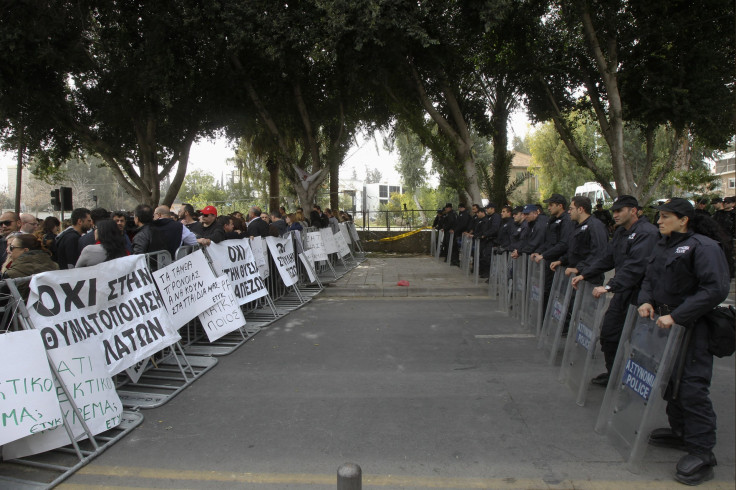Cyprus Large Depositors Face A 40% Or So Levy To Rescue Country’s Banking System From Collapse

Cyprus bank customers with deposits of more than €100,000 ($128,740) could face a levy of around 40 percent, according to comments made Tuesday by Michalis Sarris, the country’s finance minister.
This is a considerable departure from the original proposed take of 9.9 percent, after the country decided to scrap taxing account holders with deposits of less than €100,000. The final sum has yet to be determined and will be determined after the government decides whether or not to protect public pensions.
"The exact percentage . . . is going to be significant," Sarris told the BBC.
Banks in the country will remain closed until at least Thursday, and withdrawals will continue to be capped at €100, at least until €10 billion of European Union and International Monetary Fund money begins pouring into the country’s overextended financial system.
The levies on deposits is part of the requirement that Cyprus cough up €5.8 billion on its own in order to avail itself of the bailout money.
While the prospect of Cyprus bowing out of the euro zone has been averted, bitterness prevails in the negotiations. Not only has Germany been largely bankrolling this and other country bailouts, especially of Greece, the negotiations have pitted the providers of bailout funds, who require major and unpopular austerity measures, against the recipients of these funds, who say the larger economies of the euro zone (read: Germany) are bullying the weaker partners ultimately in the interest of the markets and the health of the currency upon which all euro zone countries depend.
Even though they make up only a fraction of the funds doled out so far to five countries -- Cyprus, Spain, Portgal, Ireland and Greece -- the negotiation going on between EU officials and Nicosia have been characterized as particularly tense and disorganized.
"It's difficult to disentangle from the Cypriots who is proposing what," a senior euro-zone official told The Wall Street Journal. "I have never, ever witnessed anything like this. It's a disaster.”
© Copyright IBTimes 2024. All rights reserved.












